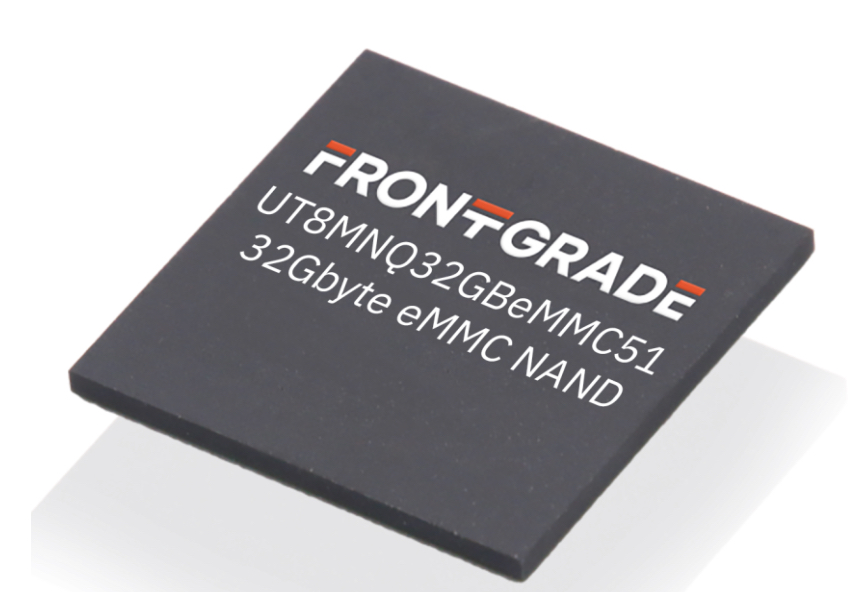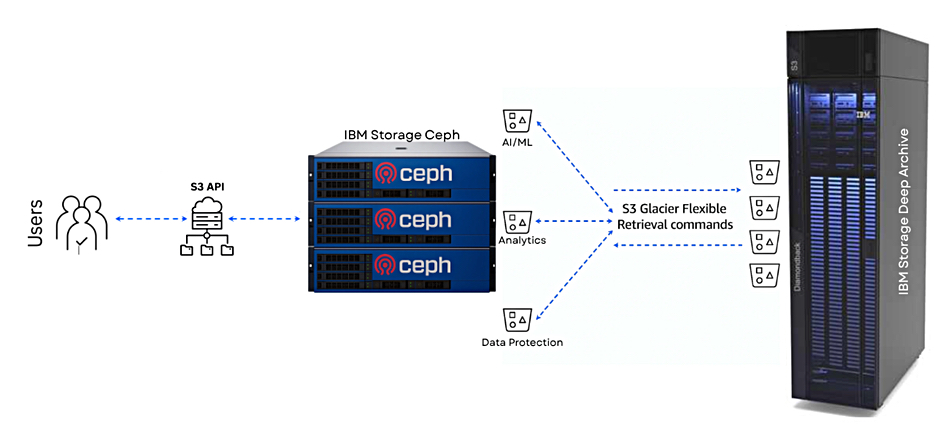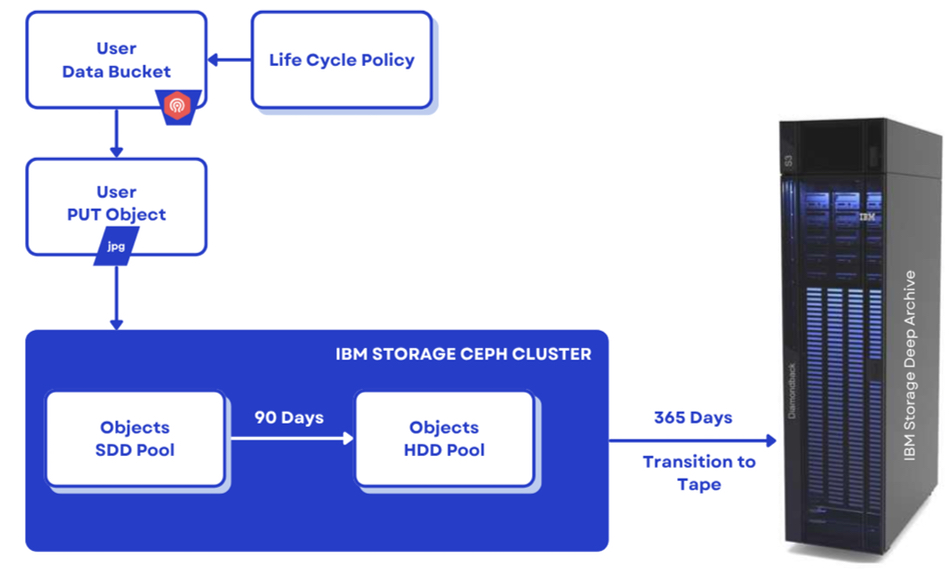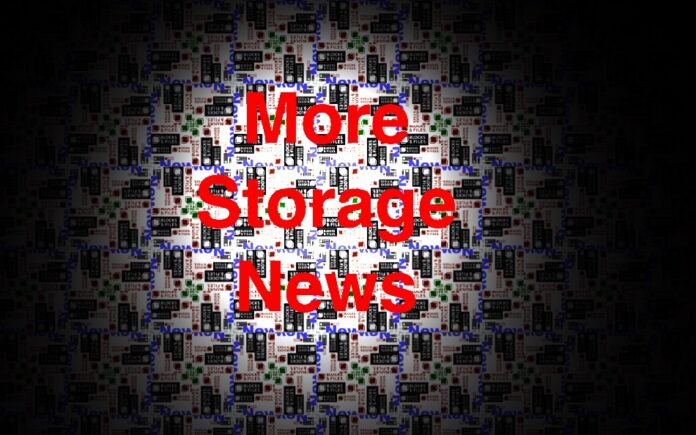Adeptia Connect is a business data exchange software moving data between applications, partners, and customers, supporting data integration, application integration, and B2B/EDI processes. It can be single or multi-tenant and deployed on-premises or in the cloud or both. It has AI-driven data mapping, pre-built connectors, and reusable templates, allowing non-technical users to create and manage data workflows. Adeptia has just announced self-managed and hybrid deployment options for Connect. “Hosted on Microsoft Azure and AWS and managed by Adeptia’s specialized Cloud Infrastructure Engineering team, Adeptia’s self-managed option combines the simplicity of SaaS with the enterprise security standards that customers demand. Adeptia handles complex operational tasks – such as deployment optimization, monitoring, backups, disaster recovery, and version upgrades – while maintaining rigorous security compliance, including SOC 2 certification.” More info here.
…
Data source connector supplier Airbyte has added new features to its Enterprise product: the ability to facilitate data sovereignty and compliance across different global regions; synchronize data with its metadata to assist AI models’ ability to improve reasoning and accuracy; and directly load data volumes to BigQuery and Snowflake, which we’re told increases data sync speeds and reduces compute costs. Direct loading can reduce compute costs by 50 to 70 percent, and increases speed by up to 33 percent depending on the use case.
Airbyte now enables synchronized unstructured files and structured records to be transferred in the same data pipeline, which is the most efficient way to preserve metadata and data relationships – enabling richer data context and significantly improving the performance of AI Large Language Models (LLMs) using that data. There are more details in the blog post and more about Airbyte Enterprise here.
…
Assured Data Protection (ADP) is partnering with technology services distributor Avant in North America to offer Rubrik and Nutanix-based managed backup, disaster recovery (DR), and cyber resiliency services. It will mean that Avant can offer Rubrik’s backup and DR technology to customers for the first time with Nutanix technology also being available, depending on needs.
…
Ataccama ONE v16.2 introduces AI-driven data lineage features designed to help business users audit, trust, and act on their data, without writing a single line of SQL. It says: “Business users can now trace a data point’s origin and understand how it was profiled or flagged without relying on IT. Ataccama shows how data flows through systems and provides plain-language descriptions of the steps behind every number. For example, in a financial services setting, a data steward can immediately see how a risk score was derived or how a flagged transaction passed through a series of enrichment and quality checks. That kind of visibility shortens reviews, streamlines audits, and gives business teams the confidence to act on the data in front of them.”
…
Broadcom’s Tomahawk Ultra is an Ethernet switch for HPC and AI workloads with 250 ns switch latency at full 51.2 Tbps throughput. It delivers line-rate switching performance even at minimum packet sizes of 64 bytes, supporting up to 77 billion packets per second. It reduces header overhead from 44 bytes down to as low as 6 bytes, while maintaining full Ethernet compliance – boosting network efficiency and enabling flexible, application-specific optimizations. The switch incorporates lossless fabric technology that eliminates packet drops during high-volume data transfer, and implements Link Layer Retry (LLR) and Credit-Based Flow Control (CBFC) to eliminate packet loss and ensure reliability. It’s designed with topology-aware routing to support advanced HPC topologies including Dragonfly, Mesh, and Torus.
…
Cadence announced the tapeout of the industry’s first LPDDR6/5X memory IP system solution optimized to operate at 14.4 Gbps, up to 50 percent faster than the previous generation of LPDDR DRAM. The Cadence IP for the JEDEC LPDDR6/5X standard consists of an advanced PHY architecture and a high-performance controller designed to maximize power, performance and area (PPA) while supporting both LPDDR6 and LPDDR5X DRAM protocols for optimal flexibility. It says its new LPDDR6/5X memory IP system offering enables scaling up AI infrastructure to accommodate the memory bandwidth and capacity demands of next-generation AI LLMs, agentic AI and other compute-heavy workloads for various verticals. Multiple engagements are currently underway with leading AI, high-performance computing (HPC) and datacenter customers.
…
Research from data streamer Confluent says more than two-thirds (67 percent) of UK IT leaders see disconnected, siloed data as preventing them from fully adopting AI and machine learning (ML) – making fragmented data systems the largest obstacle to AI success. There was:
- Ambiguity surrounding data lineage, timeliness, and quality assurance – 63 percent
- Insufficient skills and expertise in managing AI projects and workflows – 61 percent
- Limited ability to seamlessly integrate new data sources – 57 percent
- Insufficient infrastructure for real-time data processing – 50 percent
Download Confluent’s 2025 Data Streaming Report here.
…
Confluent announced that Confluent Cloud is now available in the new AI Agents and Tools category on AWS Marketplace. It says this enables AWS customers to easily discover, buy, and deploy AI agent solutions, including its fully managed data streaming platform, Confluent Cloud, using their AWS accounts, for accelerating AI agent and agentic workflow development. Confluent Cloud streams, connects, processes, and governs data as it flows throughout the business in real time, enabling customers to build and deploy intelligent, adaptable, and scalable AI applications faster. By replacing fragmented, batch-based systems with a continuously updating stream of business context, Confluent creates a shared, real-time data backbone that AI agents can subscribe to, interact with, and reason over. Confluent Cloud empowers customers to confidently scale their businesses for the future with AI at the forefront.
…
China’s CXMT, the parent of DRAM fabber ChangXin Memory, is preparing for an IPO in China. This is another sign, together with YMTC’s NAND plans below, of China’s growing self-sufficiency in memory technology and production. China could emerge as a DRAM and NAND supplier on the world stage.
…
Data management supplier Denodo’s cloud-based Agora offering is now available in the AWS Marketplace’s new AI Agents and Tools category. Denodo is offering both a SaaS version (Agora) and an Amazon Machine Image (Denodo Enterprise Plus), giving AWS customers a flexible path to build Agentic AI ecosystems using open standards. With support for the Model Context Protocol (MCP) built into the latest Denodo AI SDK, organizations can now unify, govern, and deliver real-time data to GenAI apps without having to replicate or re-engineer their entire data architecture.
…
Denodo has launched DeepQuery, a new capability that is bringing reasoning-based GenAI to enterprise systems. While most GenAI tools stop at retrieving facts, DeepQuery connects to live, governed enterprise data and delivers answers that explain the why behind the what. These answers are fully reasoned, cited, and ready for decision-making. Rather than pulling data into a silo, DeepQuery applies structured reasoning directly on real-time systems to support sales teams, finance, HR, and more. It’s the first enterprise-grade GenAI to offer this depth of synthesis with full explainability and traceability marking an evolution toward cognitive GenAI, where models don’t just answer – they investigate. Denodo is offering early access to select partners through its AI Accelerator Program. Denodo also announced the availability of Model Context Protocol (MCP) support as part of the Denodo AI SDK.
…
China’s Exascend offers products like PCIe NVMe SSDs, SATA SSDs, CFast, and CFexpress cards, tailored for demanding applications in aerospace, AI, IoT, and video surveillance. It has two new PE4 SSDs, 7 mm U.2 models: 23.04 TB and 30.72 TB. They “enable system integrators to maximize capacity in edge servers, rugged industrial computers, on-premises AI nodes, and space-constrained datacenters where every watt and every millimeter count.” The PE4 30.72 TB doubles the density of competing 7 mm U.2 SSDs and enables up to 737 TB of flash in a single 1U server, cutting rack space requirements by 50 percent compared to 15 mm drives and delivers a two-fold jump in TB-per-U efficiency.
The PE4 series have a PCIe Gen 4 x 4 interface and use 3D TLC NAND. They are rated for up to 1 drive write per day (DWPD) and offer a 2-million-hour mean time between failures (MTBF). Engineering samples of the PE4 Series U.2 SSD in 23.04 TB and 30.72 TB models are shipping now to select customers, with volume production scheduled for Q3 2025. The PE4 7 mm family is already available in 7.68 TB and 15.36 TB capacities.
…

Frontgrade Technologies, which provides high-reliability microelectronics for space and national security, has unveiled its embedded MultiMediaCard (eMMC) – a space-grade NAND memory product offering 32 GB density, the highest available in today’s market. Designed to deliver maximum capacity and resilience in space environments, this radiation-tolerant, non-volatile flash data storage device is optimized for low Earth orbit (LEO) missions and beyond. It has an integrated flash controller with built-in FTL for wear leveling, bad block handling, and ECC, and has radiation-tolerant construction suitable for many mission orbit requirements.There is a standard eMMC 5.1 interface for streamlined system integration. Frontgrade’s eMMC is currently available for sampling. Flight units are expected to be available in Q4 2025. Download a datasheet from this webpage.
…
IBM says integrating Storage Ceph with its Storage Deep Archive “presents a compelling solution for organizations looking to optimize their data archival strategies. The combination delivers substantial cost efficiency, operational simplicity, air gap resiliency, and policy-driven flexibility.” Ceph now supports policy-based transitions of data to external S3-compatible storage tiers, including those that present Glacier Retrieval classes. IBM’s Storage Deep Archive has “ultra-low-cost archival capabilities” and “IBM Storage Deep Archive uniquely complements Ceph’s capabilities by offering an S3 Glacier-compatible interface without the traditional overhead associated with tape systems,” although it is a tape library system. An IBM blog has more information.


Note: IBM Storage Deep Archive is an on-premises archival data storage system integrated within an IBM Diamondback server and a 5U top rack, utilizing tape storage with an S3 Glacier command interface. It offers up to 27 petabytes of capacity in a 19-inch rack.
…
William Blair analyst Jason Ader says of Nutanix: “With respect to the competitive fallout from Broadcom’s acquisition of VMware, Nutanix sees this as a multi-year displacement opportunity, less characterized by a specific tipping point and more by a continuum that will build on itself over time (putting more pieces in place right now to execute on the land grab, including channel enablement, OEM and external storage partnerships, and incremental sales reps). While Nutanix has already seen some benefit from VMware displacements (as evidenced by the recent uptick in new logos and the strong and growing seven-figure pipeline), inertia with VMware customers is real (especially with larger, complex deployments) and software/hardware refresh cycles often need to align for customers to shift off VMware.”
…
VergeIO is offering replacement storage with the launch of The AFA Replacement Kit. VergeIO says it’s “an offering designed to replace traditional all-flash arrays with a simpler, more cost-effective infrastructure solution. VergeIO customers have reported reducing storage costs by a factor of ten, in addition to the added savings from eliminating expensive VMware licensing and support agreements. This VergeIO kit brings together three Solidigm 4 TB enterprise SSDs and a VergeOS server license combined into one streamlined platform. Along with your servers, it’s a complete, ready-to-run infrastructure solution. All IT needs to do is insert the included flash drives into empty drive bays in existing servers, and they’re ready to deploy VergeOS.” VergeIO marketing head George Crump said: “It is 12 TB per node, typical customer has at least four nodes. If a customer needs more, we have flexibility.”
We don’t see customers choosing this as a general external AFA replacement, e.g. rejecting NeApp AFF A150, which is both a scale up (2RU x 24 slots) and scale-out external storage system (to 12 x A pairs) whereas the VergeIO AFF Replacement is a scale-out system with three-drive (slot) nodes. We see it specifically as a VMware vSAN replacement.
VergeIO was been asked about this point and a spokesperson said: “The VergeIO AFA Replacement Kit is not limited to three drives or three nodes—those were illustrative starting points for the press release. The solution can scale to any number of drives per server and any number of servers. It’s designed to give IT teams flexibility to size configurations based on workload requirements, not fixed appliance specs.”
Also the product is both a vSAN and general external AFA replacement, with VergeIO saying: “The AFA Replacement Kit serves both purposes. It functions as a general AFA replacement, suitable for customers considering alternatives to traditional SANs and filers from vendors like Dell, NetApp, Pure, HPE, and others.[And] It is a strong alternative for VMware customers who are moving off vSAN and want server-side flash with integrated compute and storage.”
VergeIO wants us to know “that research from ESG indicates that over 53% of SANs are used exclusively to support virtualized workloads, and over 90% support at least some virtualized workloads. VergeIO is designed to meet that need directly. While VergeOS is not designed to run non-virtualized workloads, many customers find that they can migrate bare-metal applications they previously believed too resource-intensive for virtualization. This is common in VergeOS environments thanks to its efficiency, where storage, compute, AI, and networking are integrated into a single software codebase.”
…
DigiTimes reports China’s NAND fabbing YMTC aims to pilot production of NAND chips using China-only tech this year. It was estimated to hold 8 percent of the global NAND market (a monthly capacity of 130,000 wafer starts per month) by the end of 2024, and wants to reach a 15 percent share by the end of 2026. This is based on ramping up WSPM to 150,000 and its latest gen 5 NAND memory with 294 layers built from bonded 150L and 144L components (Xtacking 4).
YMTC is on the US tech export sanctions list and cannot buy NAND fab tools using the latest technology from suppliers such as ASML. Tom’s Hardware has YMTC NAND die info:
- X4-9070 – 1 TB TLC 3600 MT/s – in production
- X4-6080 – ? TB QLC – H2 2025
- X5-9080 – 2 TB TLC with 4800 MT/s – 2026
- X5-6080 – ? TB QLC with 4800 MT/s – 2026
YMTC’s gen 6 die will likely feature 300+ layers built from 3 component stacks (Xtacking 5).
…
Zadara software is being used by East Africa services provider TouchNet at an iXAfrica co-location datacenter in Nairobi, Kenya, to provide a sovereign cloud, offering computer, networking, storage, and GPUaaS. The Zadara AI Cloud enables businesses, managed service providers (MSPs), and cloud service providers (CSPs) to optimise operations without the need to rely on offshore services. Zadara provides its own take on the public cloud with fully managed compute (EC2 compatible), storage (block, file, object), and network systems hosted in a global point-of-presence (POP) network, called edge clouds. It can also be run on AWS, Azure, GCP, and Oracle public clouds, or in a customer’s own datacenters – as in this iXAfrica case. This deployment enables sovereign cloud capabilities hosted locally in Kenya, and a public cloud-like experience (compute, storage, networking) using Zadara’s EC2- and S3-compatible services. There is full regulatory and data residency compliance for sectors requiring localized data control (e.g. government, finance, healthcare).








